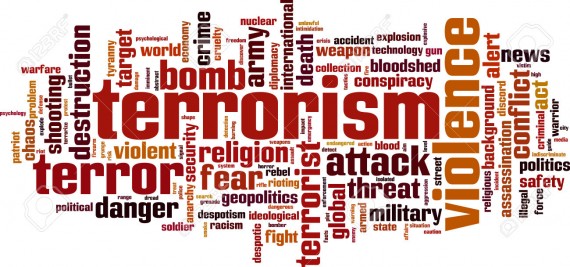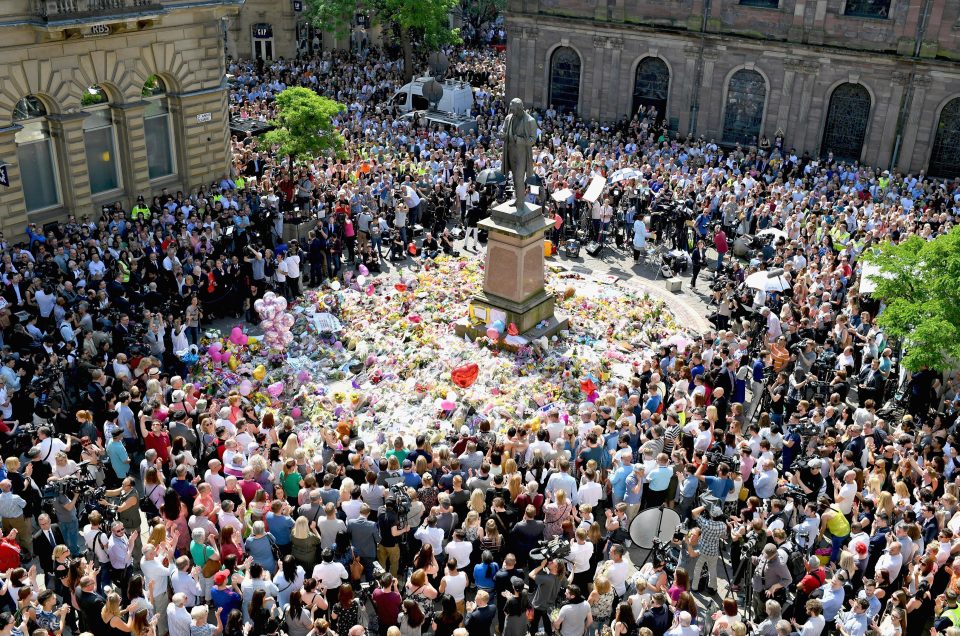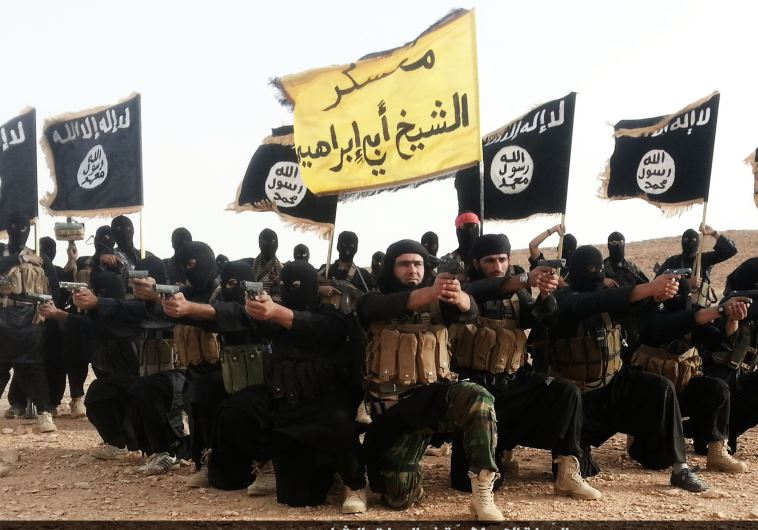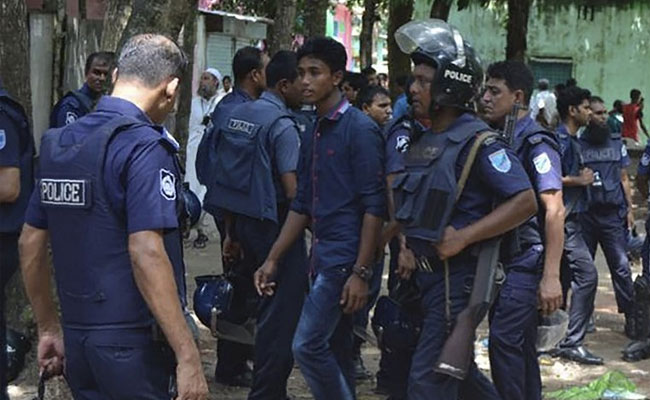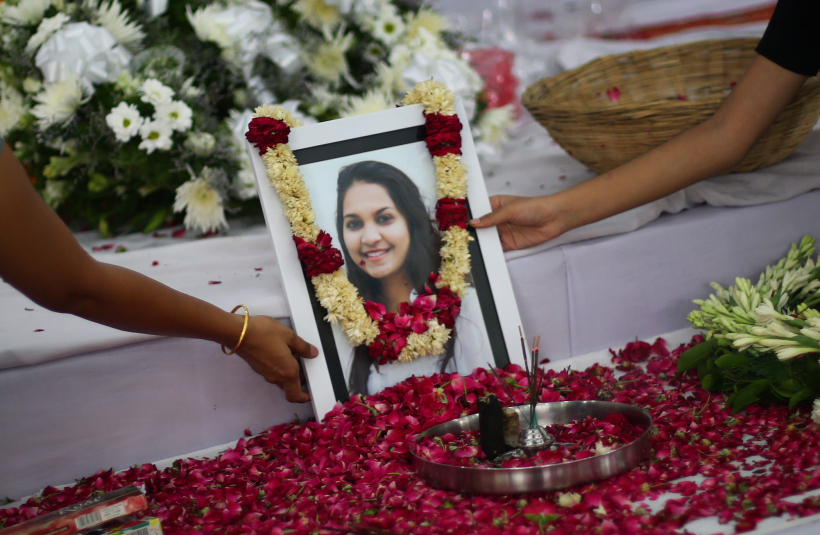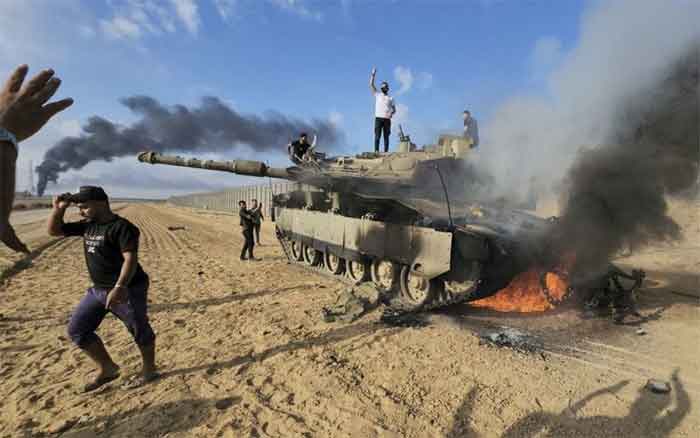
As a great scourge of humanity that it surely is, it’s worth pondering how terrorism being used as a tool to settle scores has been the flavour of all seasons for the non-state actors who come across as the chief stakeholders in the game and in equal measure, how the state actors are seen falling over each other to tread a similar path while using deadlier tactics, ostensibly to fight the menace, but actually ending up making it that much worse. Here terrorism is meant in the accepted sense of the term that involves the act of targeting, persecuting and killing of non-combatant civilians on either side.
That’s exactly what has been at display in the midst of what is going on around the world, and now in Israel-Gaza over the past couple of weeks. The question that stares us into the eye is this: “How should the citizens, the members of a community or society react in a situation when they are on the receiving end of a reign of terror and oppression being inflicted upon them by those who are lording over them as the masters of their destiny?”
It’s obviously not that this question has not been addressed before, that it surely has been, but has yielded solutions which are far from being satisfactory. In almost all such cases, in essence it’s the state’s misreading of the people’s anger against the state’s ham-handedness as a rebellion against the state that the latter’s recourse to excessive power being used to quell the resistance is sought to be justified as fair and lawful. In this situation, the question arises regarding those who happen to be sitting on the side-lines and merely watching this grisly spectacle unfold before their eyes on fellow humans while enjoying the luxury of being out of the harm’s way, how exactly are they supposed to react! Remember that, as it often happens, it could soon be their turn to savour the fruits of their indifference!
Why I reckon that there are no easy answers to these posers is because the obvious answer informed by considerations of human dignity and integrity would demand the victim to resist and show their displeasure towards such acts of repression that could manifest themselves in occasional acts of noncompliance/disobedience by them. Naturally, that would attract opprobrium followed by mild retaliation in the beginning and leading to further violence in terms of retaliation by the other side at a much greater scale and, therefore, to an unending cycle of violence. On the other hand, considerations of the principle of the excluded middle would throw up the only other available option which is to surrender to the utterly obnoxious and ugly spectacle of trading personal honour and dignity in return for what would get passed for peace – peace of the graveyard, that is!
However, after some serious thought and hard reflection, all I have been able to get at are certain rudimentary observations that may hopefully lead to a better perspective involving the issue under discussion. These observations, I’m afraid, are no more than a tentative attempt to wriggle myself out of a moral dilemma that I wish to come clean out of towards an informed evaluation and assessment of what’s going on around us.
While I tend to look at the victim’s willingness to express their displeasure towards the oppressor in nonviolent ways as being rooted in personal honour and dignity, it’s natural that a scaled up response by the oppressor would provoke a higher degree of resistance from the victim against the oppressor. In the process, the next level of resistance by the victim would provoke the oppressor to resort to a greater level of retaliation to quell what would appear to them as the first signs of organised resistance. However, much as I tend to see the will of the victim for armed struggle against the oppressor as being suicidal in view of the disproportionate balance of power between the oppressor and the oppressed whose capacity to retaliate just won’t measure up to the awesome might of its adversary, the other option to act as sitting ducks won’t help either. In the midst of this dilemma, while I look at the recent armed strike by the Hamas against Israel as utterly unjustifiable in view of the high stakes involved and the greater likelihood of a backlash from the state of Israel, and so should have been avoided in their own interests, their will to fight their tormentor who is now being looked upon as an oppressor sounds understandable, more so because the armed ingress into the Israeli territory was not entirely unprovoked. To be sure, let us not forget that the main trigger for the Hamas push into Israel on Oct.7th was provided by a sustained regime of discrimination against the Palestinians by the Israelis including the reign of horror that was unleashed by them in Jenin only a couple of weeks or so earlier than that.
That’s only a tip of the iceberg of how the Palestinians have all along been taking it in their stride what qualifies as state sponsored terror, more so since the 1967 Arab Israel war when Israel had occupied the Palestinians areas of West Bank and Gaza where Palestinians living there have been reduced to live at the mercy of Israelis, with no access to the sort of life as Israelis enjoy in those areas and in the rest of that country. Regardless of how the Israelis or the world at large may wish to look at it, the fact remains that the trauma and indignity of being treated as second class citizens with no access to freedom, basic human rights or to the opportunities of life exacts its own price that naturally get manifested in anger followed by sporadic desperate acts of resistance against the tormentor. The Hamas juggernaut into Israel has to be seen precisely in that context as also the counteroffensive by Israel against Palestinians where a much greater use of lethal firepower and arsenal was employed as a ‘natural’ reaction, never mind a vicious cycle of violence that has resulted from which it appears to be extremely hard to escape. It’s this unending cycle of violence that inevitably results in more and more brutal acts of oppression that culminate in a full scale recourse to what would constitute acts of terrorism against one another by the parties concerned.
That puts into perspective what was said in the beginning and also the desirability of reining in the propensity of routinely laying the acts of terrorism around the world exclusively at the door of non-state actors, even when enough evidence on the ground may not have emerged to clinch the issue in support of such claims at the time they are made. What I have believed for a long time, and what now stands vindicated in recent months and more so after the recent breaking of hostilities between Palestine and Israel is the confirmation of that fear- that the resort to acts of retaliation amounting to terrorism is not an exclusive preserve of the non-state actors to settle scores! As if on cue and not to be left behind, the State reacts in kind while dealing with their victims with impunity, and obviously to more devastating and deadlier effect. Those who are still sceptical would do well to watch out for how the State of Israel had unleashed horror on a hospital in Gaza where more than 500 innocent lives are reported to have been lost and how the dastardly act was given a stamp of approval by the man who had gone out of his way to express his solidarity mission with Israel while lending support to his accomplice in the mayhem. If such acts as the pinpoint assassinations, custodial deaths, extrajudicial killings, the forced disappearance of the adversaries or the recent bombing of the hospital in Gaza where innumerably many children were also among those killed or maimed, do not constitute acts of state terrorism, what does for God’s sake? Even more tragically, in this madness Israel is not alone – a whole lot of countries around the world, including some in the South East Asia are involved in similar acts of state sponsored terror, including upon their own citizens.
In conclusion, let’s understand that if it’s sought to nip the evil in the bud, it’s the otherwise initial nondescript, arguably an insignificantly small act of discrimination against a section of people whose perpetrator ought to be pinned down as the chief villain of the piece and to be stopped in their tracks. As mentioned above, that’s because it’s the first seeds of discrimination that spark subsequent developments involving progressively greater use of violence from either side to settle scores. In science as much as in real life, one knows that a slight change in the initial data could lead, over a period of time, to vastly contrasting, sometimes catastrophic consequences in the end. On the same analogy, it’s unwise to dismiss such initial acts of discrimination as a mild aberration that would peter out on their own. It’s in the natural scheme of things that such unsuspecting developments as public anger over, say political disempowerment of sections of the society, if left unaddressed, would slowly and imperceptibly snowball into a scaled-up level of an action-reaction cycle between the weak and the powerful leading to a major upheaval involving the warring parties where the carte blanche to act in self-defence would become indistinguishable from acts of terrorism from either side.
Prof. M A Sofi, Srinagar, India

